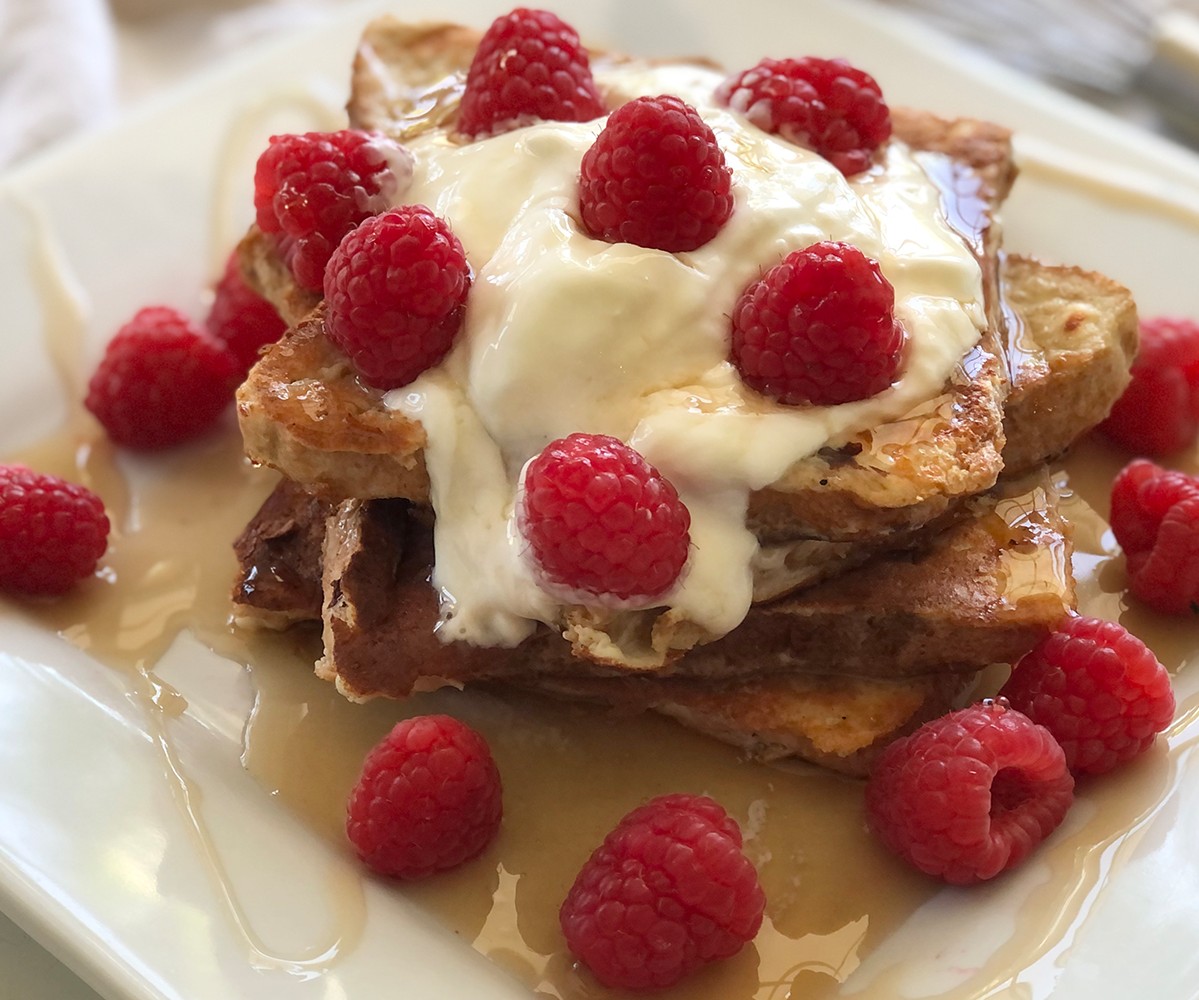When Is the Best Time to Eat Carbohydrates?

Carbohydrate consumption during the day
Firstly, we rely on carbohydrates for stored energy.
And this had led to the fallacy that "breakfast is the most important meal of the day", and that we must awake a shovel in carbohydrates from the moment our eyes open.
But this just isn't true.
Eat carbohydrates, and they'll store as glycogen to be used as energy for up to 24 to 48 hours later.
So the need to consume carbohydrates immediately for the day (or workout ahead) isn't accurate. The petrol tank is bigger than you think!
So that wipes the morning out as the best time to consume carbohydrates.
So what about lunch? Well, unless you've completed a triathlon that morning, there's no need to replenish glycogen (and thus eat carbohydrates) at lunchtime.
So now we're entering “dangerous” territory surely: carbohydrates at dinner? Won't they store as body fat because we're not burning them off at night?
Absolutely not.
Weight gain (and weight loss) is governed by either a surplus or deficit of calories.
So, eat fewer calories than you burn, and you'll lose weight. Regardless of where they come from.
So eat the bulk of your diet's calories from carbohydrates, and yes, you'll still drop some fat.
Consider this study that placed people on a weight loss diet composed of 77% carbohydrates. Guess what happened?
They lost weight of course; because they were eating fewer calories than they burnt.
Now, I would say 77% of your food from carbohydrates is too much given protein should be your most consumed macronutrient, but the point is still valid.
Ok, so we know so far:
- We don't need carbs in the morning necessarily
- We don't need them at lunch
- How many carbohydrates we eat doesn't matter as long as we're in a calorie deficit

These points are all to help us understand how and why dinner is the last option as the best time to consume your carbs.
Are you ready for this?
Carbohydrate intake at night might be better
This advice might fly in the face of everything you've read on the cover of magazines and from "experts" on social media, but let’s look at the science as to why.
One of your best fat-loss allies is a hormone called leptin. It's a hunger-regulating hormone; the more of it you have, the fuller you feel.
And obviously, the fuller you feel, the less likely you'll overeat and spoil your diet.
Think about it, when people go "off the rails" with their diet, it's not because they're full. It's because they're feeling very hungry and can't contain it anymore.
And guess what macronutrients can help increase leptin levels?
Carbohydrates.
And guess when science suggests the level of leptin is higher throughout the day?
When carbohydrates are consumed at night as opposed to earlier in the day.
This study found that when subjects ate 80 per cent of their carbohydrates at night, they lost more weight and had higher levels of leptin. This was in comparison to those who ate them earlier.
And this study showed greater weight loss and better hormonal responses (ie, more leptin) when carbohydrates were all consumed at dinner.
I know, right? If you feel like you've been bamboozled with weight loss and nutritional lies over the last few years (or even decades) you probably have.
But this is the truth!

It is best to consume carbohydrates at night
The bottom line is that consuming your carbohydrates at dinner and before bed might be better. There's a lot of research to support that.
Also, it mentally makes weight loss a lot easier when you know you've got carbohydrates to consume later in the day, as opposed to having consumed them all by breakfast and lunch.
Now, you can consume your carbohydrates whenever you like. It just looks like the nighttime is going to be better for us. This is due to higher levels of leptin that can help us stay and feel fuller for longer throughout the day. And this is what can help determine weight loss success.
So try skewing your carbohydrate consumption later in the day for potentially better results.
References:
- Jéquier E. Carbohydrates as a source of energy. Am J Clin Nutr. 1994 Mar;59(3 Suppl):682S-685S. doi: 10.1093/ajcn/59.3.682S. PMID: 8116550.
- Bussau VA, Fairchild TJ, Rao A, Steele P, Fournier PA. Carbohydrate loading in human muscle: an improved 1 day protocol. Eur J Appl Physiol. 2002 Jul;87(3):290-5. doi: 10.1007/s00421-002-0621-5. Epub 2002 May 28. PMID: 12111292.
- Murray B, Rosenbloom C. Fundamentals of glycogen metabolism for coaches and athletes. Nutr Rev. 2018;76(4):243-259. doi:10.1093/nutrit/nuy001
- Strasser B, Spreitzer A, Haber P. Fat loss depends on energy deficit only, independently of the method for weight loss. Ann NutrMetab. 2007;51(5):428-32. doi: 10.1159/000111162. Epub 2007 Nov 20. PMID: 18025815.
- Shintani TT, Beckham S, Brown AC, O'Connor HK. The Hawaii Diet: ad libitum high carbohydrate, low fat multi-cultural diet for the reduction of chronic disease risk factors: obesity, hypertension, hypercholesterolemia, and hyperglycemia. Hawaii Med J. 2001 Mar;60(3):69-73. PMID: 11320614.
- Friedman JM. Leptin and the regulation of body weigh. Keio J Med. 2011;60(1):1-9. doi: 10.2302/kjm.60.1. PMID: 21460597.
- Dirlewanger M, di Vetta V, Guenat E, Battilana P, Seematter G, Schneiter P, Jéquier E, Tappy L. Effects of short-term carbohydrate or fat overfeeding on energy expenditure and plasma leptin concentrations in healthy female subjects. Int J ObesRelatMetabDisord. 2000 Nov;24(11):1413-8. doi: 10.1038/sj.ijo.0801395. PMID: 11126336.
- Sofer S, Eliraz A, Kaplan S, Voet H, Fink G, Kima T, Madar Z. Changes in daily leptin, ghrelin and adiponectin profiles following a diet with carbohydrates eaten at dinner in obese subjects. NutrMetab Cardiovasc Dis. 2013 Aug;23(8):744-50. doi: 10.1016/j.numecd.2012.04.008. Epub 2012 Aug 14. PMID: 22901843.
Related Blogs

Can You Lose More Fat on a Ketogenic Diet?
Posted by Bulk Nutrients
Estimated reading time: 5 minutes

Do Diet Breaks Bolster Metabolism and Muscle Mass During Diets?
Posted by Bulk Nutrients
Estimated reading time: 5 minutes

Understanding Your Metabolism
Posted by Ellie Hearn
Estimated reading time: 7 minutes













































